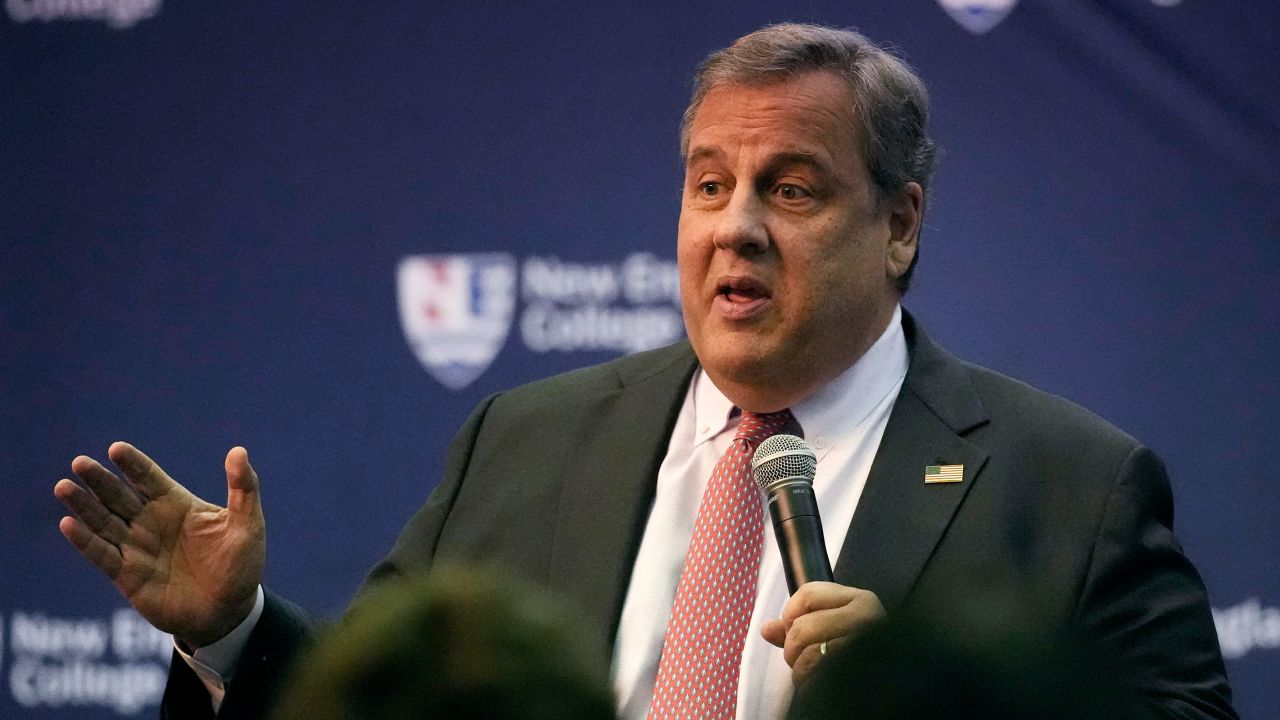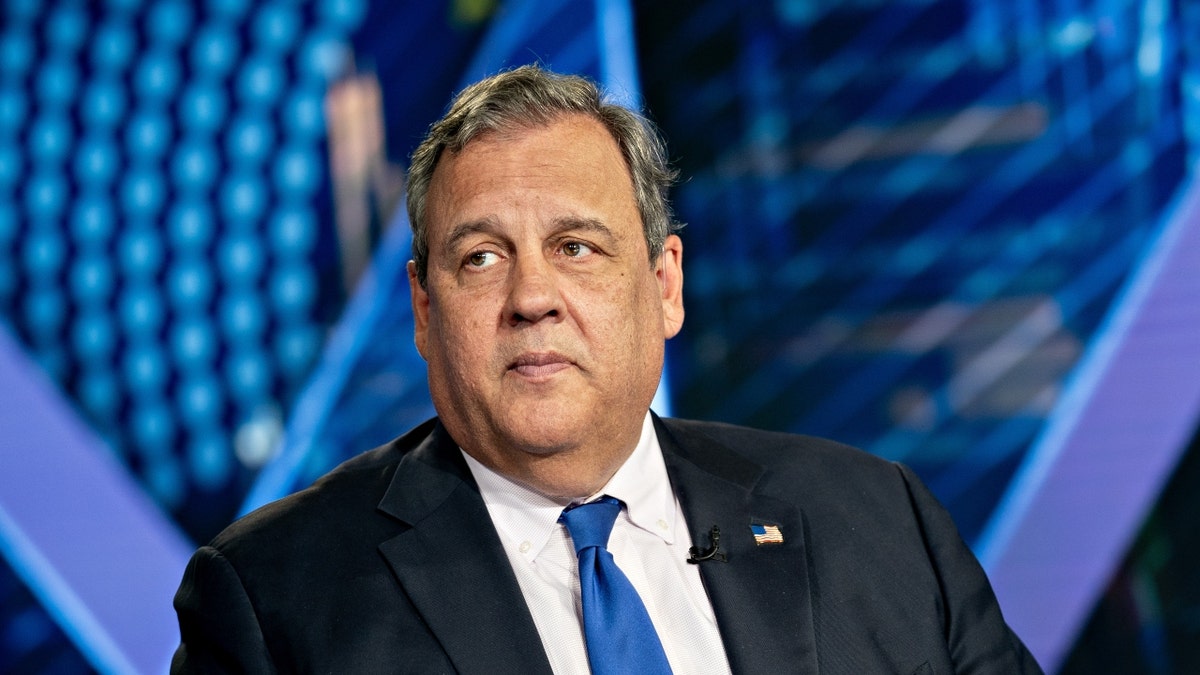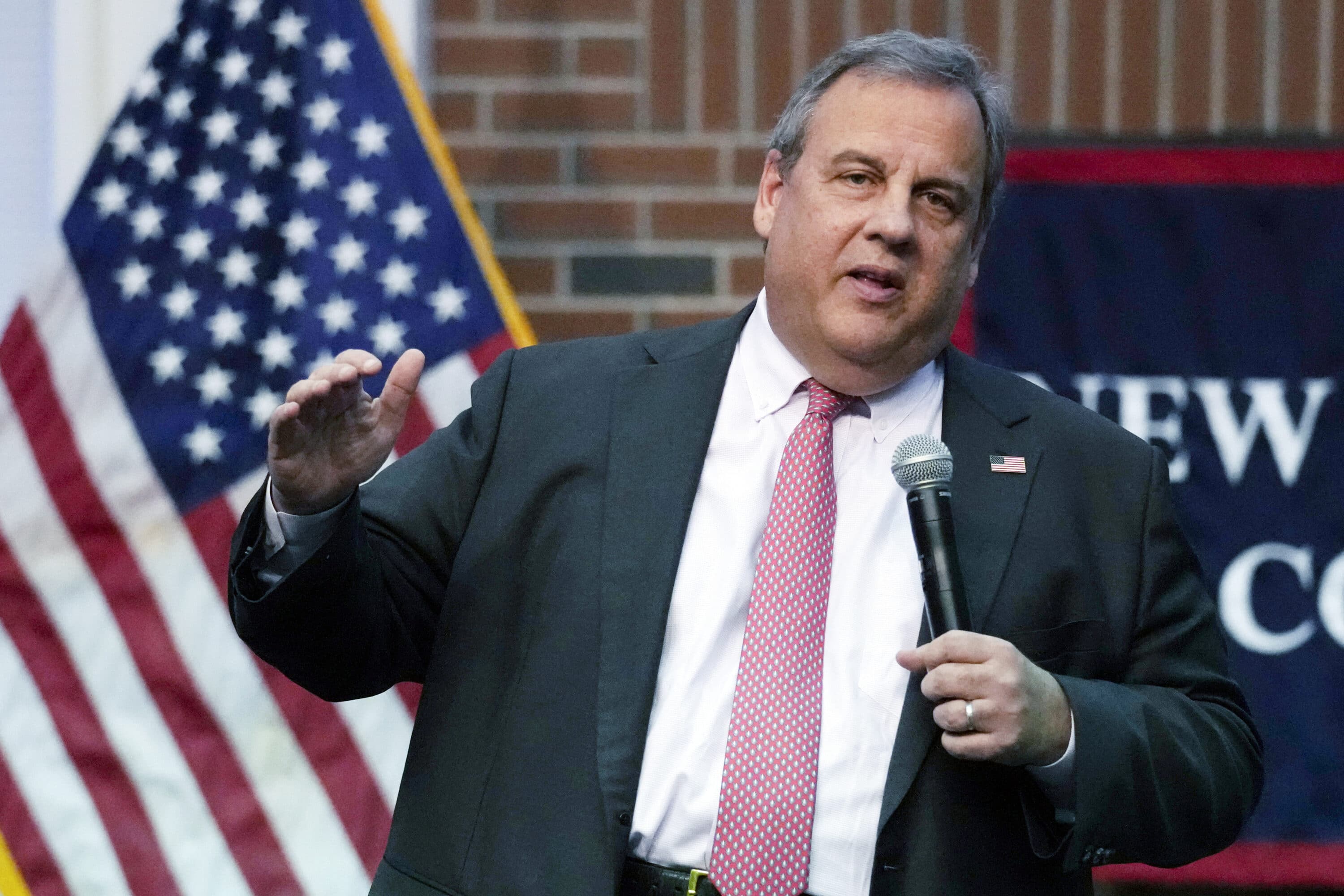Chris Christie - What You Need To Know
When people consider the political landscape, it's pretty common for names to come up that spark a lot of discussion, and Chris Christie is certainly one of those figures. Folks often have questions about how campaigns work, especially when it comes to things like how money gets gathered and what the rules are around it all. It’s a bit like trying to figure out a big puzzle, what with all the different pieces that fit together to make a political run happen.
For anyone thinking about getting involved, maybe by giving a little something to a campaign, or even just wanting to meet a candidate, there are always some things worth knowing. It's not just about who a person is, but also about the nuts and bolts of how their efforts are put together. You might wonder, for example, what happens with contributions, or where you can actually go to hear someone like Chris Christie talk about what he believes.
This discussion aims to clear up some of those common questions, drawing on details about the Chris Christie for President, Inc. operation. We'll look at the practical aspects, from money matters to public gatherings, giving you a straightforward look at some of the things that make up a political campaign. It's really about giving you a clearer picture of what’s involved, so you know what’s what.
Table of Contents
- A Look at Chris Christie's Path
- Chris Christie's Personal Information
- What's the Deal with Campaign Money?
- Chris Christie's Campaign Donations
- Who Can Chip In to Chris Christie's Campaign?
- Rules for Chris Christie Campaign Supporters
- When Can You Meet Chris Christie in Person?
- Chris Christie Town Hall Gathering
- Is Chris Christie's Campaign Selling Your Information?
- Chris Christie and Privacy Matters
- A Quick Look Back
A Look at Chris Christie's Path
Chris Christie, as many people know, has been a significant presence in American public life for quite some time. He's had a career that stretches across different areas of public service, starting out in legal fields before moving into elected office. He's held positions where he had a lot of say in how things were run, and he’s been a voice in national conversations, too. It’s almost like he’s been on a very public stage for a good while, speaking his mind and taking on big challenges.
His path has included serving as a prosecutor, a job where he was tasked with upholding the law and pursuing justice. This kind of work often involves dealing with complicated situations and making tough calls, which probably shaped his approach to other roles he took on. Later, he moved into the world of state governance, which is a very different sort of responsibility. This involved overseeing a whole state's operations, from its budget to its services for citizens, so it’s a big undertaking.
Throughout his time in the public eye, he has also sought the highest office in the country, aiming to lead the nation. These kinds of efforts require a lot of dedication, a clear message, and the ability to connect with people from all walks of life. His campaigns have been a way for him to share his vision for the country and to try and persuade folks that he’s the right person for the job. It's a long and winding road, that, for anyone who decides to try and become president.
Chris Christie's Personal Information
Here's a brief look at some general details about Chris Christie's background, which helps paint a picture of the person behind the public figure. This information is typically what people might look for when trying to get a sense of someone who has been involved in politics for a good while.
| Full Name | Christopher James Christie |
| Born | September 6, 1962 |
| Birthplace | Newark, New Jersey |
| Political Party | Republican |
| Previous Roles | Former Governor of New Jersey, Former U.S. Attorney for New Jersey |
What's the Deal with Campaign Money?
When you hear about political campaigns, a topic that often comes up is money. It’s a pretty central part of how these efforts operate, allowing candidates to reach out to voters, hold events, and share their ideas. Yet, the way money works in politics isn’t always straightforward, especially for those who might be thinking about giving a donation. There are specific rules that govern these financial contributions, and knowing about them can clear up some common misunderstandings, you know.
One very important aspect of campaign finance that often gets talked about is how donations are treated when it comes to taxes. People are used to the idea of giving money to a good cause, like a charity, and then being able to write that off on their taxes. But political contributions are actually quite different in this regard. This distinction is something that many people might not be aware of, and it’s a key piece of information for anyone considering supporting a political candidate with their own money.
Understanding these financial guidelines is really quite important for both the campaigns themselves and for the individuals or groups who want to support them. It helps ensure that everyone involved is playing by the same set of rules and that there's a clear sense of what's allowed and what isn't. So, when we talk about Chris Christie's campaign, for instance, these general principles about money apply just as they would to any other political endeavor, which is pretty standard.
Chris Christie's Campaign Donations
For those who might be thinking about supporting the Chris Christie for President, Inc. campaign, there's a specific point about contributions that's worth keeping in mind. The campaign makes it clear that any money given to them isn't something you can deduct when you file your federal income taxes. This is actually a standard rule for political contributions across the board, but it’s still something that people often ask about, in a way.
What this means, simply put, is that giving money to a political campaign is not the same as giving to a charitable organization. When you donate to a recognized charity, the government often allows you to reduce your taxable income by that amount, which can save you some money on your taxes. However, with political contributions, the government views them differently, and they don't offer that same tax benefit. It’s just how the system is set up, you see.
So, if someone decides to give money to support Chris Christie's bid for president, they should do so knowing that the full amount they give is a direct contribution to the campaign, and it won't lessen their tax bill. This is a pretty important piece of information for anyone planning their personal finances, as it helps them understand the true cost of their support. It's something that campaigns are required to make known, so people are fully aware of what they're doing, which is fair enough.
Who Can Chip In to Chris Christie's Campaign?
The rules around who can contribute money to a political campaign are a big part of ensuring fairness and transparency in elections. It’s not just anyone who can open their wallet and give money; there are specific guidelines about where the money can come from. These rules are put in place to prevent undue influence and to keep the playing field level for all candidates. It's a system that tries to make sure that the voices of everyday people are heard, and that powerful groups don't dominate the process, you know.
When a campaign like Chris Christie's is seeking financial support, they have to be very careful about who they accept money from. There are particular types of organizations and individuals whose contributions are either limited or outright forbidden. This is especially true for entities that might have interests outside of the country, or for businesses that are structured in certain ways. These guidelines are designed to protect the integrity of the election process, which is really quite important.
Understanding these restrictions is not just for the campaign team; it's also helpful for anyone who might be considering offering financial help. Knowing the boundaries helps people make sure their support is given in a proper and legal way. It’s all part of the effort to make sure that political funding is as clear and as accountable as it can be, so people have confidence in the system, which is a good thing, really.
Rules for Chris Christie Campaign Supporters
When it comes to contributions for Chris Christie for President, Inc., there are some clear boundaries about who can give money. The campaign, like all others, needs to follow rules that say contributions from corporations are not allowed. This means that a business, as a legal entity, cannot directly give money to the campaign. This rule is in place to prevent corporations from having too much direct influence over political outcomes, which is something many people agree on, apparently.
Another group of individuals who face restrictions are foreign nationals. Generally speaking, people who are not citizens of the United States and who do not have permanent resident status – often referred to as a "green card" – are not permitted to contribute to federal campaigns. This is a long-standing rule designed to keep foreign influence out of American elections. It’s a pretty strict rule, and campaigns have to be very careful to make sure they are not taking money from these sources, in a way.
The campaign specifically mentions that contributions from foreign nationals "without 'green'" are not accepted. This is a very direct way of saying that unless a foreign national has permanent legal residency in the U.S., they cannot financially support the campaign. These rules mean that Chris Christie's campaign, like others, must put in place systems to check the source of their donations and make sure they are following these important guidelines. It's a big part of keeping the election process fair and within the rules, so, it’s a necessary step.
When Can You Meet Chris Christie in Person?
For many people, getting to see a political figure speak in person can be a really interesting experience. It’s a chance to hear their ideas directly, ask questions, and get a feel for their personality and approach. These kinds of public events, often called town halls, are a common way for candidates to connect with voters and share their message beyond just what you see on television or read online. It's a more direct form of communication, which many people appreciate, you know.
Campaigns work hard to set up these gatherings in places where people can easily come and participate. They choose venues that can accommodate a crowd and pick times that are convenient for folks who might be working or have other commitments during the day. The goal is to make it as easy as possible for interested members of the public to attend and engage with the candidate. It's a pretty important part of how campaigns try to build support and get their message out there, you see.
If you're someone who likes to be present for these kinds of discussions, knowing when and where an event is happening is the first step. Campaigns usually put out information well in advance, giving people enough time to plan to be there. It’s a good way to feel more connected to the political process and to hear directly from those who want to represent you. So, keeping an eye out for these announcements is often a good idea if you're keen to participate, which is something many people are.
Chris Christie Town Hall Gathering
For those interested in hearing Chris Christie speak and perhaps asking a question, there was a specific opportunity announced for a town hall event. This kind of event is a common way for candidates to meet voters in a more informal setting than a big rally. It’s a chance for a back-and-forth, which can be quite valuable for both the candidate and the audience, you know.
The details for this particular gathering were set for Tuesday, January 9, with the event kicking off at 6:30 PM. Knowing the exact time is helpful for planning your evening, especially if you need to travel a bit to get there. It’s usually a good idea to arrive a little early, too, just to make sure you get a good spot and don't miss anything important, which is pretty standard advice for these things.
The location chosen for this town hall was Mitchell Hill BBQ Grill and Brew, which is located at 50 North Main Street in Rochester, New Hampshire 03867. This kind of venue, a restaurant or a community space, is pretty typical for town hall meetings, as they offer a comfortable and accessible place for people to gather. It’s about creating an environment where people feel welcome and can listen comfortably, so, that's a key consideration.
To attend this event, people were asked to register. The campaign provided a link for registration, making it simple for interested individuals to sign up. Registering often helps the campaign get a headcount, which is useful for planning logistics like seating and security. It also means they can send you any updates about the event, should there be any changes. So, if you were thinking of going, signing up through the provided link was the way to go, you know, to secure your spot.
Is Chris Christie's Campaign Selling Your Information?
In today's world, where so much of our lives are online, questions about personal information and privacy are very much on people's minds. When you interact with any organization, whether it's a business or a political campaign, it’s natural to wonder what happens with the details you share. People want to know if their name, email address, or other bits of information might be shared with others or used in ways they didn't expect. It's a very valid concern, you see, in this day and age.
Political campaigns, just like other groups that collect personal data, need to be transparent about their practices. There are laws and regulations in place, especially in certain parts of the country, that aim to protect people's privacy. These rules are designed to give individuals more control over their own information and to make sure that organizations are clear about how they handle it. It's a bit like having a set of guidelines for how your personal details are treated, which is pretty reassuring.
So, when you consider giving your contact information to a campaign, perhaps to register for an event or to get updates, it's a good idea to have some sense of their privacy approach. Knowing whether they sell or share data is a common question people have, and campaigns often address this directly in their privacy statements. It’s about making sure that your trust is respected, and that your information is used in a way you're comfortable with, which is only fair, really.
Chris Christie and Privacy Matters
Regarding privacy and personal data, the Chris Christie for President, Inc. campaign has made a statement about its practices, particularly in relation to California's privacy law. This law is quite well-known for giving people in California specific rights about their personal information and how businesses handle it. It’s a pretty big deal in the world of data privacy, you know.
The campaign has stated that it does not currently engage in activities that would be considered a "sale" for the purposes of California’s privacy law. This is an important point because the term "sale" in privacy law can sometimes mean more than just exchanging data for money. It can also include sharing information in ways that benefit the organization, even if no cash changes hands directly. So, their statement means they are not doing those things that fall under that definition, which is good to know.
For individuals, this means that if you provide your details to the Chris Christie campaign, they are indicating that they are not participating in the kinds of data sharing practices that California's law aims to regulate as a "sale." This provides a certain level of reassurance for supporters, particularly those in California, about how their personal information is being managed. It’s about being upfront with people about how their data is handled, which is a pretty standard expectation these days, you know, for any organization.
A Quick Look Back
This discussion has covered several key aspects related to Chris Christie's political activities, drawing from specific details about his presidential campaign. We began by getting a general sense of Chris Christie's background and public service. This included a brief overview of his career path and some personal details, presented in a simple table for quick reference.
We then moved into the area of campaign finance, looking at how money works in political efforts. A specific point of focus was the fact that contributions to Chris Christie for President, Inc. are not deductible for federal income tax purposes, explaining what this means for those who might give money. The conversation also touched upon who is permitted to contribute to the campaign, specifically mentioning the rules around corporations and foreign nationals without permanent resident status.
Another part of our talk centered on public engagement, detailing a specific town hall event with Chris Christie. We looked at the date, time, and location of this gathering in Rochester, New Hampshire, and how people could register to attend. Finally, we addressed concerns about personal information, discussing the Chris Christie campaign's stance on data privacy, particularly in relation to California’s privacy law and the concept of "sale" of personal data.

Chris Christie kicks off 2024 campaign with sharp attacks on Trump

Chris Christie’s niece charged in drunken brawl with Louisiana deputies

Chris Christie hammers Trump at CNN town hall | Courthouse News Service